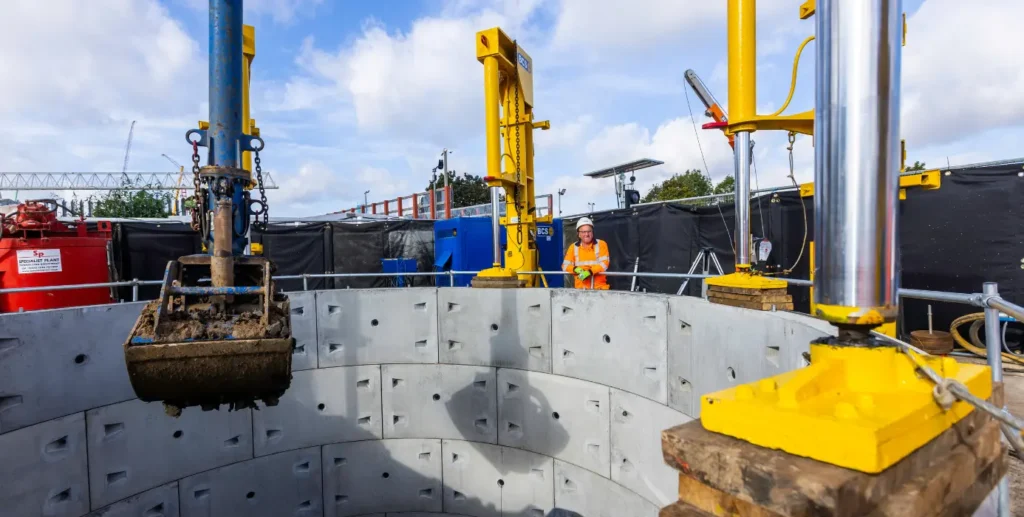UK Power Networks has partnered with Barhale to build a micro-tunnel under the Grand Union Canal in West London to deliver power for HS2.
The tunnel will be used to carry power cables for HS2’s Tunnel Boring Machines (TBMs) set to build the high-speed rail line to Euston, and UKPN will supply 45MVA of electricity supply to facilitate the construction of the high-speed railway.
Three new high-voltage cable circuits around 3km in length will be energised at the distribution network operator’s nearby substation, which will feed into the network and power the manned TBMs.
UKPN appointed civil engineering, infrastructure and tunnelling specialist Barhale to connect the circuits to its Old Oak Common substation by driving a 125m-long tunnel beneath the Grand Union Canal, reaching the company’s substation on Atlas Road.
The TBMs are expected to be delivered to HS2’s Old Oak Common station site later this year and assembled for launch in the underground box.
With work due to be completed in Spring 2024, the completion of the micro tunnel is a significant milestone for UKPN and HS2, allowing for the completion of the final section of the 33,000-volt cable route.
Niki French, head of utilities at HS2, said: “The delivery of this power tunnel is a critical part of our programme to build the new high-speed railway into the heart of London. Through close collaboration and great teamwork, we have worked together to ensure the HS2 programme is maintained.”
Pamela Ali, programme manager of the Capital Programme at UKPN, said: “It has been a huge achievement to successfully and safely construct the micro-tunnel, which will enable us to install our circuits across the Grand Union Canal.”
Power in rail
This is not the first project involving railway hotspots in which UKPN has partaken. For example, in December 2023, the firm explored introducing district heating to King’s Cross.
District heating is often referred to as a system that utilises a singular central heat source to distribute its heated commodities. This can include both space and water heating.
The project, which has been nicknamed “Heatropolis”, is being developed in conjunction with energy management company Passiv and district heating network firm Metropolitan and could lay the foundation for deeper heat decarbonisation in King’s Cross.
In the project’s initial discovery phase, Heatropolis quantified how smart low-carbon heat networks can use design innovations and innovative control strategies to maximise the use of existing network capacity.
In the next phase, the project will explore what commercial methods will be needed to help unlock this value and test the feasibility of new technologies.






